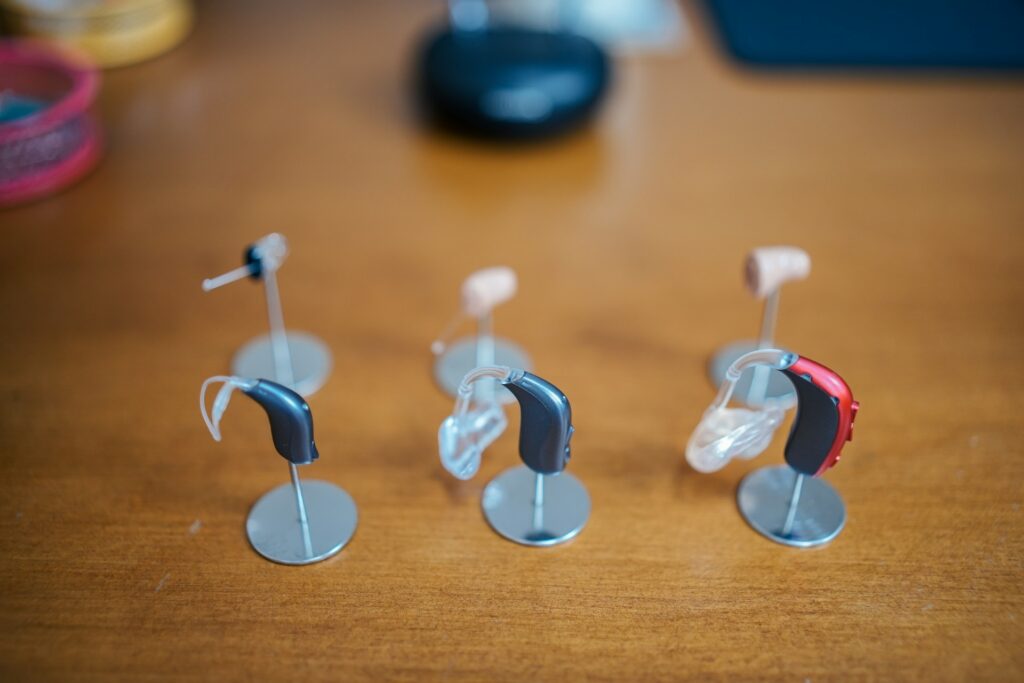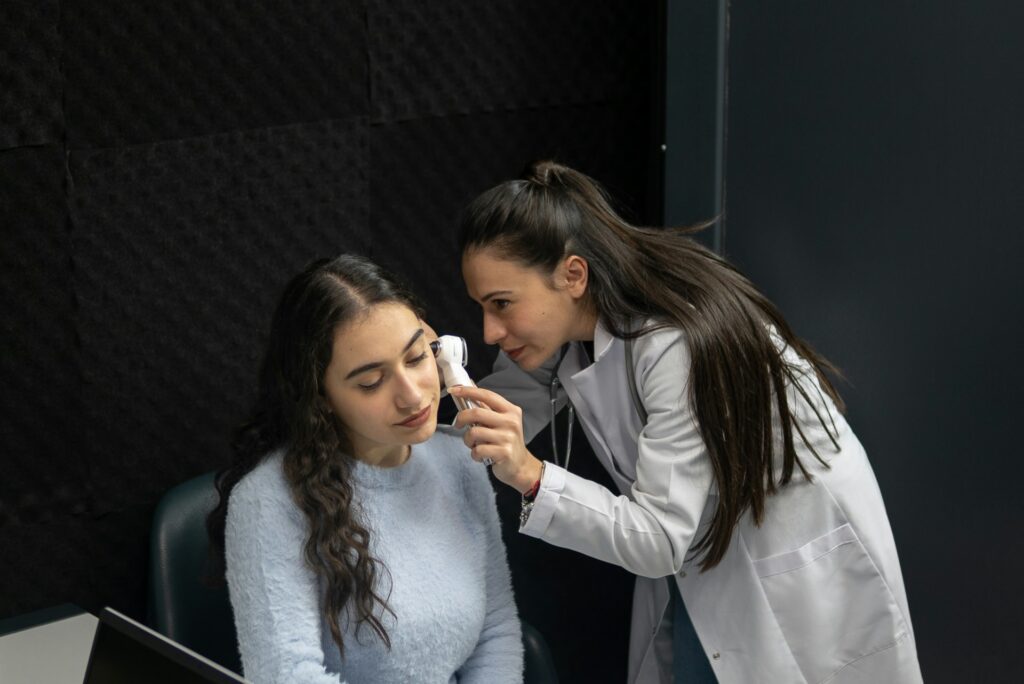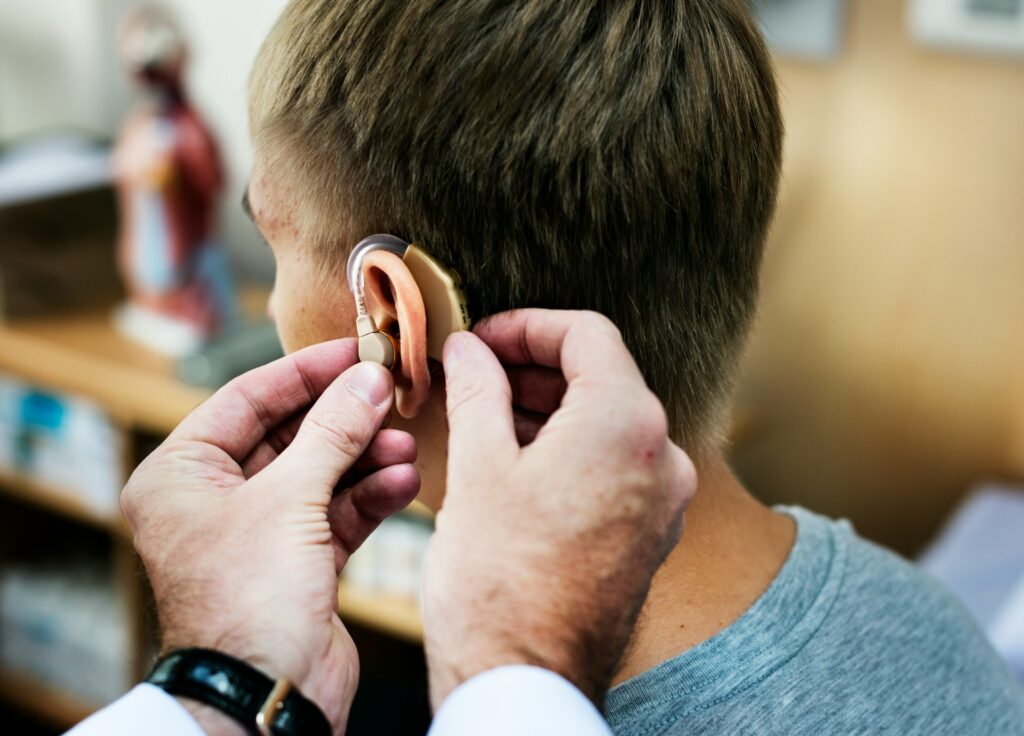Taking care of our ears involves more than just being mindful of the volume on our headphones. In truth, our overall lifestyle plays a pivotal role in maintaining good hearing health. Nutrition, physical activity, and how we protect our ears day-to-day contribute significantly to our auditory system’s wellbeing. We often underestimate the influence of diet and exercise on our hearing capacities, and many of us are unaware of effective strategies to shield our ears in environments filled with noise.
In this article, we’ll delve deeper into how a balanced diet and consistent exercise routine can be your allies in maintaining excellent hearing health. We will also offer practical advice for keeping your ears safe in noisy settings and underline the importance of regular hearing assessments. Each of these components can help ensure that your hearing remains sharp and effective, allowing you to enjoy clear communication and the full range of sounds life has to offer.
The Impact of Diet on Hearing Health
Did you know that what you eat can affect your hearing? It’s true; our diet plays a crucial role in maintaining good hearing health. Nutrients like omega-3 fatty acids, potassium, and vitamins are essential in preserving the functioning of our auditory system. For instance, omega-3 fats, found abundantly in fish like salmon and sardines, have been shown to help strengthen the blood vessels in our ear’s sensory system. This can potentially reduce the risk of hearing loss associated with ageing.
Furthermore, potassium, which helps regulate fluid levels in the body, including the fluid in the inner ear, is vital for proper hearing function. Foods rich in potassium such as bananas, potatoes, and spinach should be a regular part of our diet to support ear health. We also shouldn’t overlook the power of antioxidants and vitamins found in fruits and vegetables; they combat the free radicals that can damage our inner ear cells.
Exercise and Hearing: What’s the Connection?
Engaging in regular physical activity can also significantly benefit our hearing health. Exercise increases blood flow to all parts of the body, including the ears, which can help maintain the health of the cells within them. Activities such as walking, cycling, or jogging do not directly affect our ears, but they contribute to overall cardiovascular health, which is linked to hearing health.
Additionally, regular exercise helps prevent diseases like hypertension and diabetes, which are known risk factors for hearing loss. By keeping these conditions at bay, we’re indirectly protecting our ears. However, it’s important to remember while exercising, especially in noisy environments like gyms, to protect our ears. Overexposure to loud noise during exercise can negate the positive impacts of physical activity on hearing health. Thus, striking a balance is key—maintain your physical health while also taking care to not expose yourself to potentially damaging noise levels.
Practical Tips for Protecting Your Ears in Noisy Environments
In noisy environments, protecting your hearing is paramount. We understand how crucial it is to maintain ear health in daily situations where noise levels can be overwhelming. One effective method to safeguard your ears is using earplugs or noise-cancelling headphones. These devices can significantly reduce noise exposure, ultimately protecting the delicate structures inside your ears from damage. Another practical tip is to keep a safe distance from sources of loud noises, such as speakers at concerts or machinery in industrial areas. This simple practice can dramatically decrease the intensity of sound reaching your ears, keeping them healthier for longer.
Additionally, it is advisable to limit the duration of exposure to loud noises. If you find yourself in a noisy environment, try to take regular breaks away from the noise. This provides your ears some much-needed respite, reducing the risk of hearing damage. Integrating these practical steps into your routine can make a substantial difference in preserving your hearing health in any noisy setting.
Routine Hearing Checks: A Key to Preventing Long-Term Damage
Routine hearing checks are an essential part of maintaining overall ear health. These preventive measures allow us to identify any potential hearing issues early on, making it possible to address them before they develop into more severe problems. Regular check-ups can catch signs of hearing loss that you might not have noticed. These subtle changes, if left unchecked, can lead to significant impairments over time.
We recommend scheduling a hearing test at least once every two years, or more frequently if you’re regularly exposed to loud noises or have noticed changes in your hearing ability. During these checks, our specialists assess your hearing capacity and examine the health of your ears, providing personalised advice based on the findings. Regular visits not only help in maintaining good ear health but also ensure that any form of hearing aids or protective devices are functioning optimally, tailor-fitted to your needs and lifestyle.
Conclusion
Maintaining ear health is not simply about responding to issues as they arise but about integrating preventative and protective practices into your daily life. From understanding the basics of earwax and its function to adopting daily cleaning habits, and protecting your ears in noisy environments to routine checks; each step plays a vital role in ensuring long-term ear health and optimal hearing.
If you have concerns about your hearing or ear health, or it’s time for your routine hearing check, don’t hesitate to contact us at Country Hearing Care Mildura. Our team is dedicated to providing you with professional hearing services in Australia tailored to protect your hearing well into the future. Let’s work together to keep your ears healthy!










